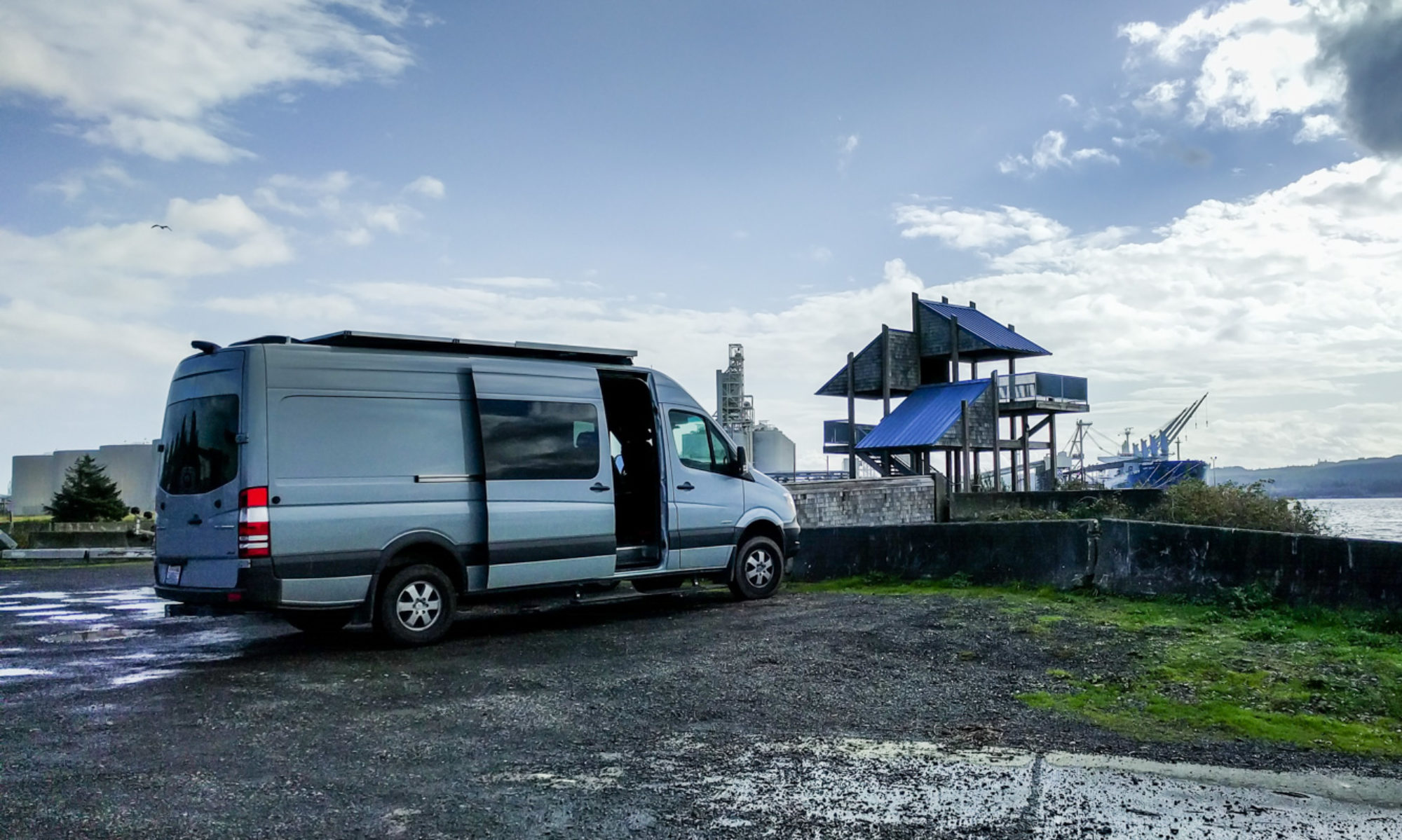Solar is a great way to recharge a battery and keep equipment like fridges and fans running during the day. Here’s a summary of what we’ve done to add solar charging to our van.
Choosing panels
Monocrystalline, Polycrystalline, flexible, rigid, wattages, voltages – there are a lot of variables when you are choosing a solar array. We did some research and decided to use 265W panels made by Grape Solar because we could fit 3 on the roof and still have just enough room for a fan behind them. That’s overkill for most people, but we have a massive Lithium Ferric Phosphate battery that can easily store all the power the panels produce. Some people prefer to mount the panels so they aren’t visible from the ground. We wanted more surface area of solar panels so we had more power coming in, so we made ours look more like a roof rack.
How to put panels on the roof
You will probably end up with your panels flat on the roof. There are several mounting options, but you will probably either use a roof rack to mount them, or make use of the roof channels (if your van has them) to slide in little fixings for the edges of the panel. The panels are pretty rigid and don’t necessarily need much extra support.
What to look for in a solar controller or charger
Your solar panel doesn’t produce a steady voltage or current, so it’s not a good idea to hook it straight to your devices or battery. Our panels, for instance, can produce 38 volts or more. That would fry any regular 12v equipment.
Luckily, solar controllers are designed to take the varying voltage and current and turn it into a steady output.
And not to worry – so long as you set your solar controller parameters correctly, your solar system will just hook straight in to the rest of your electrical set-up.
Tax credit implications of installing a solar system
Crazy as it seems, Recreational Vehicles (RVs) have been accepted by the IRS as a second home for tax purposes if you live in them for more than 10 days a year. So, you can get a tax credit for installing a solar system on your van. Obviously, consult with your Tax adviser to make sure this applies to you and your situation. Here’s IRS Form F5695 (PDF) and its instructions. There are mutterings that this credit might disappear after the 2016 tax year.
Update 1/2016: The solar system credit is extended until 2021 now, but will step down in credit value from 2019 onwards.
Solar news
- How to size a solar system for your van
- Turning electrical complexity into simplicity
- Calculating battery size
- Solar panel wind fairing
- Front fairing reduces roof rack noise
- Victron Energy electrical system
- Solar panels are alive and charging
- Turning sunlight into power – a solar controller
- Mounting solar panels to the roof of a van
- What to look for in solar panels for a van
- Solar panels for “free” power


